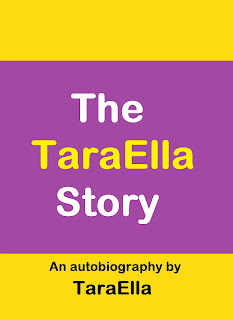My Ideas: An Overview
My mission is ultimately to bring about peace. To this end, we must first ensure that the West is not overtaken by aggressive 'Spartan' forces (like the populist-authoritarian 'New Right'). Early 21st century Western society is divisive, tribal, irrational and lacking in love and compassion, which is why aggressive-authoritarian forces are on the rise. My ideas are aimed at reversing this trend.
This is an overview of my main ideas:
1) Practical Progressivism: I think we need to bring back progressivism, in the original sense. We may call this 'practical progressivism', in contrast to the theory-based so-called progressivism promoted by some in the 'New Left'. If we consider the word 'progressive' in a purely practical sense, then I guess any reform that improve people's lives can and should be considered progressive. I think if 'progressive' is consistently defined this way, then most people would be able to get behind it. To practice a truly 'practical progressivism', I think the key is to engage with all sorts of interesting ideas, without theory-based preconception.
2) L+C=R: I believe the best kind of reformism is found in the combination and balance between (classical) liberal optimism in the ability of rationality to improve society and people's lives, and (moderate) conservatism's cautious approach to social change. As I like to say, L+C=R. To develop a robust and sustainable reformism, we first need to develop and strengthen both these traditions.
3) Battle for the Soul of Libertarianism: The reason why we must win the battle for the soul of libertarianism is because it is simply the battle to define what freedom means, at least in the Western political context. Libertarianism is the only movement in the Western political landscape that consistently says it is for freedom first and foremost, and consistently speaks the language of freedom. If we cede the libertarian movement to people who don’t actually put freedom first, or believe in freedom in a truly universal way, or else use libertarianism to justify their extreme agendas that have nothing to do with practical personal freedom, we will lose the language of freedom to people who don’t actually believe in freedom, and will use it to justify its opposite. This will be a real tragedy, with serious implications across society, including implications on civil liberties, free speech and even world peace or lack thereof.
3a) Libertarian Reformism: I am a libertarian reformist. This means I believe in libertarian ideals, but also believe that we have to get there via a long process of gradual reform. History has shown us that gradual reform is the best way to achieve change in a sound, sustainable and long-lasting way.
3b) Moral Libertarianism (EMA): I believe that the non-aggression principle (NAP) that underpins classical libertarianism is very difficult to apply in practice. In a reformist context, and as advised by conservative philosophy, there is the very reasonable demand that any proposal for change needs to be rooted primarily in practical need rather than abstract philosophy, and be able to be applied gradually and rationally. It is due to this demand that I have proposed the principle of Equal Moral Agency (EMA) as an alternative. I call this alternative Moral Libertarianism, because it locates the focus for freedom in morality, and in practically resolving moral conflicts in the real world.
4) Conditions for Freedom: Over the years, I have also learned that freedom does not exist in a vacuum. Tribalism, echo chambers, moral panics, over commitment to abstract ideology and philosophy, and peer pressure to conform are all bad for freedom, for example. Therefore, any serious pro-liberty program must also pay serious attention to creating and maintaining the conditions required for freedom. My strong opposition to both the postmodern critical theory left and the populist-authoritarian New Right is rooted in this.

